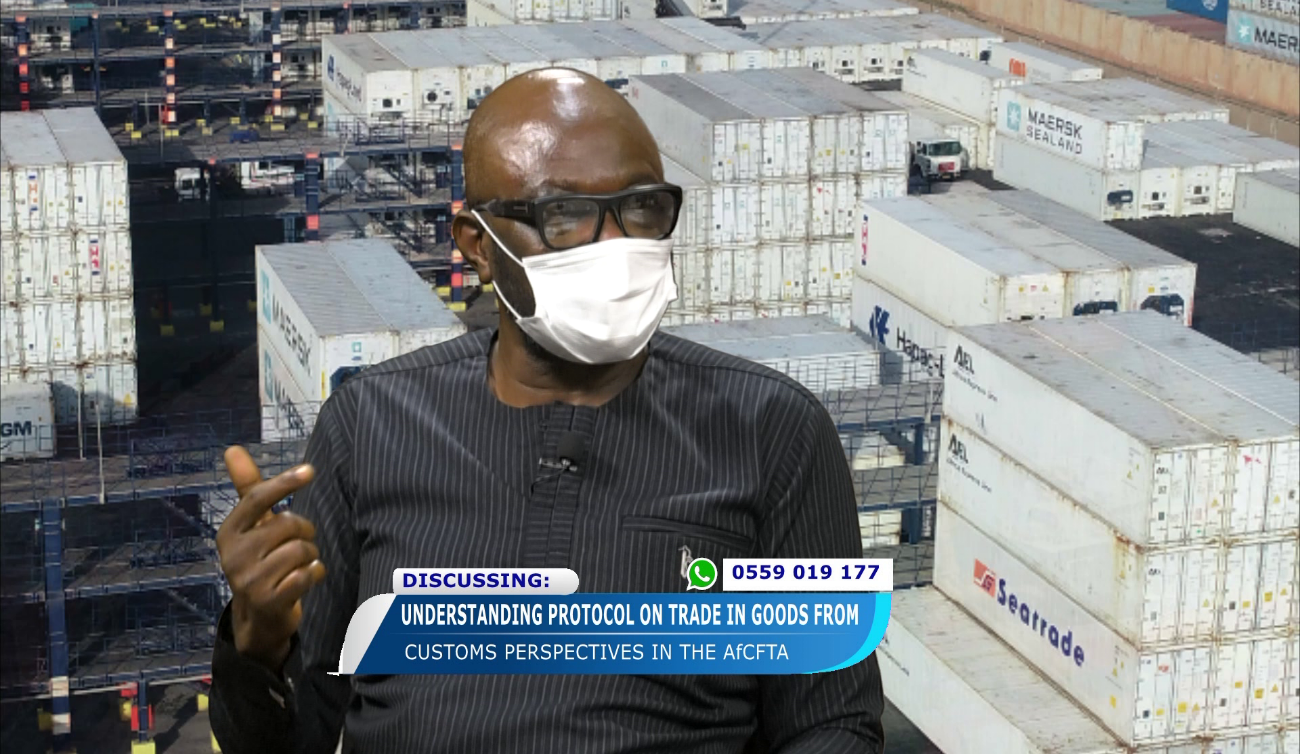Members of the local trading public and civil society have expressed some level of concern regarding the understanding of the protocols guiding the trade agreement as well the full advantages it brings to the ordinary citizen.
Speaking on Eye on Port, the President of the Ghana Union of Traders Association, Dr. Joseph Obeng, re-echoed the sentiments of traders and solicited for more clarity on the trade protocols.
“I have been demanding some education, otherwise the expectation that they have is so huge that if care is not taken, we cannot even take off without encountering problems,” he bemoaned.
He called for access to information by economic operators and the trading public in order for them to benefit from the single continental market and urged customs to embark on aggressive training programmes that would educate the trading community on practices within the AfCFTA.
“Our ministries, Investment Promotion and Export Promotions are to deal with this and give us information. Not until the time we have adequate information, what are we travelling to countries like Cameroon to do?” he quizzed.
Dr. Joseph Obeng particularly asked for clarity in the rules of origin guiding the AfCFTA stating that it is a fundamental principle to the success of the regional trading pact.
“How are we going to define the nationality of a product? That must be defined clearly. Therefore, we have to be educated to see whatever we are going to trade on,” he explained.
The GUTA president asked for significant incentives, especially with regards to taxes and tariffs to be given to local manufacturers and businesses as they would be in competition with goods and products from other continents.
“How are we going to access their products at a cheaper price from within? If we are going to trade within, then we are expecting that, the FOB prices that we are getting from Europe is what we have to get from Africa. So, when the tariffs are removed then we have an edge,” Dr. Obeng added.
He also highlighted the need for local traders to access cheaper credit services than that of competing markets, to encourage increased production.
“Our competitors are the third-party countries in Asia, Turkey, the Americas, where we are going to compare. Where their interest rates are between 2-3 percent, sometimes 1%, our average is around 20%. If we are not able to sort these things out, and we think we are about to do trade among ourselves well, then we are bound to be disappointed,” he warned.
